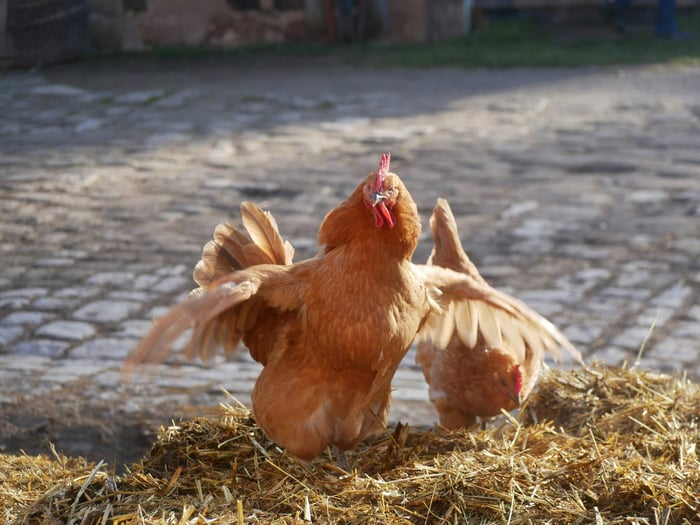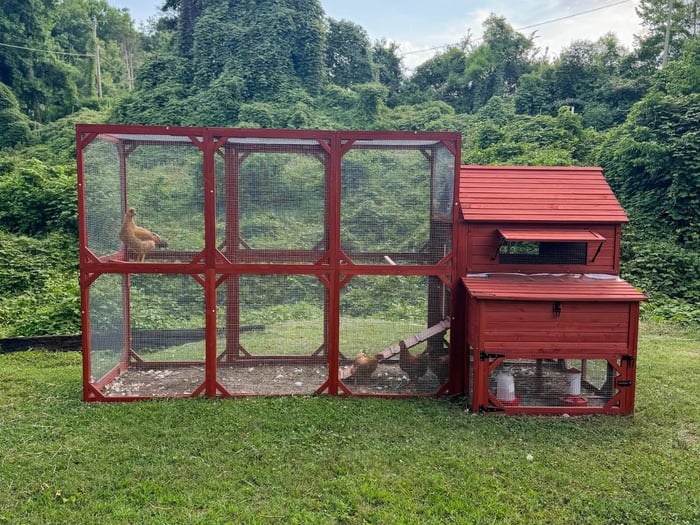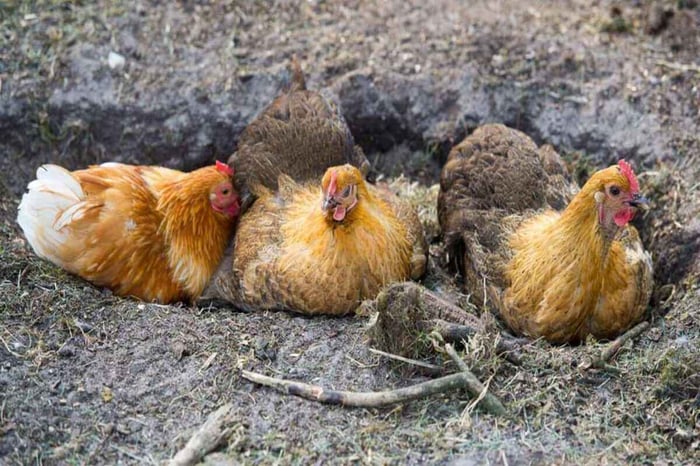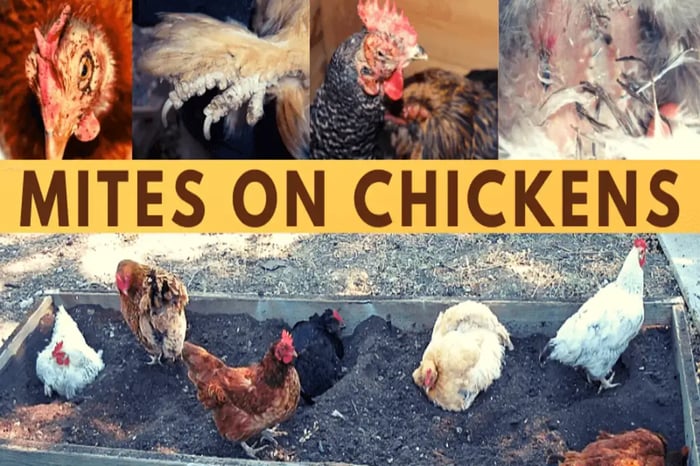Table of Contents
- Minimizing Heat Stress for Chickens
- Why Heat Stress Happens in Chickens
- Signs of Heat Stress in Chickens
- 1. Provide Ample Shade
- 2. Improve Coop Ventilation
- 3. Always Offer Cool, Fresh Water
- 4. Feed Water-Rich Frozen Treats
- 5. Offer Dust Baths in Shady Spots
- 6. Cool Their Feet (Try Chilled Bricks!)
- 7. Limit Handling and Activity
- 8. Adjust Feeding Schedule
- 9. Chill Nesting Boxes and Run Surfaces
- 10. Plan for Long-Term Heat Solutions
- Final Thoughts
- FAQs
Minimizing Heat Stress for Chickens
As summer temperatures rise, backyard chicken keepers face a challenge that can’t be ignored: protecting their flocks from the risks of heat stress. While chickens are surprisingly resilient in winter, they are far more vulnerable in hot weather. Without intervention, high temperatures can lead to reduced egg production, illness, and even death.
Whether you live in a humid southern climate or a dry western region, heat stress in chickens is a serious issue. In this guide, we’ll walk you through why it happens, what signs to look for, and how to keep your flock safe and comfortable all summer long.
Why Heat Stress Happens in Chickens
Chickens are built for warmth, not for heat. They don’t have sweat glands like humans. Instead, they regulate their body temperature through panting, spreading their wings, and limiting activity. While that works in mild conditions, it isn’t enough during prolonged heatwaves.
Most chickens begin to feel discomfort once temperatures hit 85°F. By the time the mercury reaches 95°F or more, they are at high risk for heat stress. Heavier breeds such as Brahmas, Orpingtons, and Cochins are especially vulnerable due to their thick feathering. Even lightweight breeds like Leghorns can be affected without adequate shade and ventilation.
Signs of Heat Stress in Chickens
Spotting the signs early is essential. If your chickens are showing symptoms of heat stress, you need to act quickly. Here’s what to watch for:
Open-mouth breathing or panting
Holding wings out from the body
Droopy appearance or lethargy
Pale or discolored combs and wattles
Reduced appetite or water intake
Fewer eggs or thin-shelled eggs
In severe cases, you may see a hen collapse or appear disoriented. This can turn fatal quickly if not addressed, so keep an eye on your flock if there are long periods of high temperatures!
1. Provide Ample Shade
It may sound too simple, but shade is your first line of defense against the heat. Natural shade from trees and shrubs is ideal, but artificial options work well too. Try using:
Tarps secured over the run
Shade cloth stretched across open areas
Pop-up canopies or lean-to shelters
Wooden pallets leaned together and covered
It’s also a good idea to let your chickens rest under their coop if it’s raised off the ground. A shaded run can drop the ambient temperature by several degrees, making a big difference in preventing heat stress.
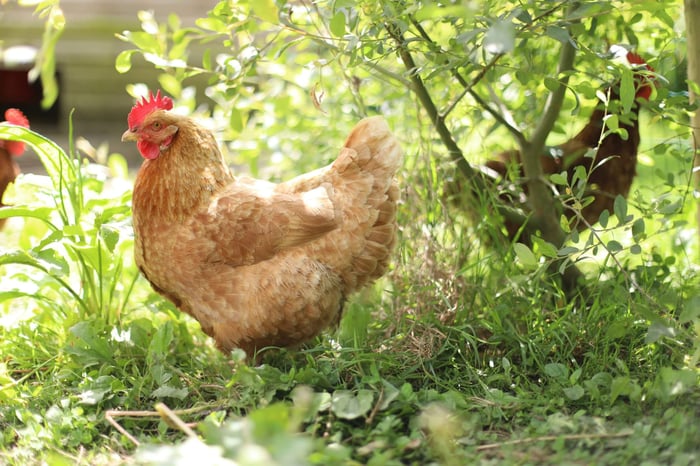
2. Improve Coop Ventilation
During the hottest months, poor airflow can turn a coop into an oven. Improving ventilation helps release trapped heat and moisture, reducing the risk of overheating at night.
Consider adding:
Vents or screened holes at the top of the coop
Windows with hardware cloth to allow breezes
Small battery- or solar-powered fans (secured safely)
Prop-open doors during the day for cross ventilation
Remember, risk doesn’t go away when the sun sets—especially in a sealed, stuffy coop.
3. Always Offer Cool, Fresh Water
Hydration is another key factor in the warm summer months. Without access to clean, cool water, chickens become dehydrated quickly, which intensifies their body temperature issues.
To keep your flock hydrated:
Refill waterers at least twice daily
Keep waterers in the shade
Add ice cubes or frozen water bottles to cool the water
Use wide bowls for easier access
Offer multiple water stations to avoid crowding
You can also add electrolyte powder to their water during peak heat for added support. Electrolytes help restore balance and prevent heat stress from progressing.
4. Feed Water-Rich Frozen Treats
Help your chickens hydrate and stay cool with refreshing snacks. Water-rich fruits and veggies can lower internal body temperatures while keeping your hens entertained.
Some heat-fighting favorites include:
Frozen watermelon or cantaloupe
Chilled cucumber slices
Peas or corn straight from the freezer
DIY “chicken popsicles” made with fruit and herbs frozen in ice cube trays
Just don’t overdo sugary fruits—balance is key when offering treats during times of heat stress.
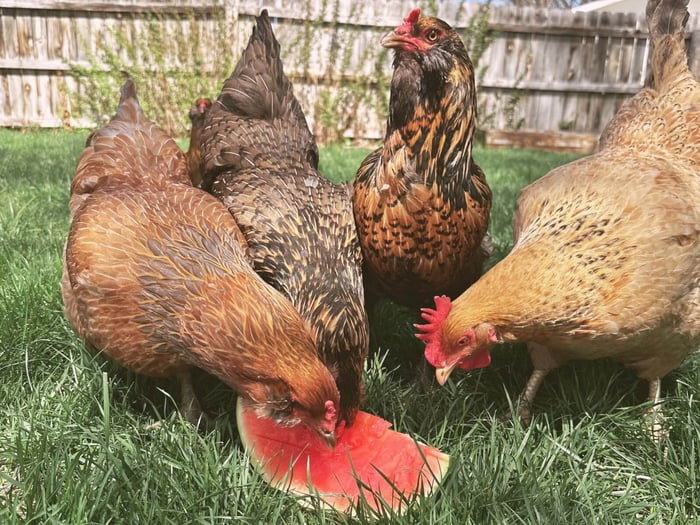
5. Offer Dust Baths in Shady Spots
Dust baths are a natural way for chickens to stay clean, reduce parasites, and cool off. Providing shaded dust bathing areas helps them regulate temperature and cope with heat stress more effectively.
To set one up, you’ll need:
A shallow tub, old tire, or garden box
A mix of dry dirt, sand, and a bit of wood ash or diatomaceous earth
Placement under a tree or tarp
When chickens feel warm, they’ll instinctively seek out these areas to fluff and roll, which also cools their skin.
6. Cool Their Feet (Try Chilled Bricks!)
Chickens can release body heat through their feet, so cooling the ground they walk on can make a significant difference. Here’s a clever trick: place a few bricks in a shallow tray of ice water for about 30 minutes. Once they’re chilled, place the bricks in the run or shady part of the coop.
Your birds will naturally gravitate toward the cool surfaces to stand or rest on, reducing their risk of heat stress. You can rotate bricks throughout the day to maintain the cooling effect.
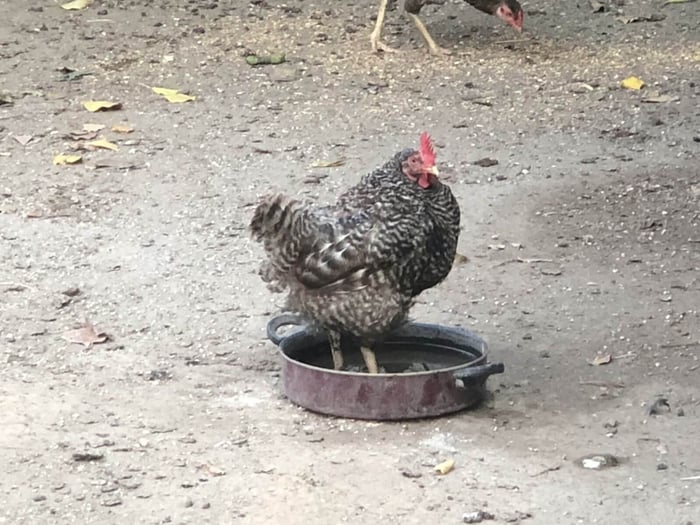
7. Limit Handling and Activity
Every time you handle or chase your chickens, you're raising their stress levels—especially dangerous during hot spells. Skip any unnecessary chores, like wing clipping or flock rearrangement, and avoid transporting chickens during mid-day.
Reducing physical and emotional stress is one of the easiest ways to lower their chances of experiencing heat stress.
8. Adjust Feeding Schedule
During hot weather, your birds might eat less. This is normal—but you can support them with strategic feeding to help avoid heat stress.
Tips include:
Feed early in the morning or after sunset
Switch to smaller, frequent meals
Avoid corn-heavy feed, which generates heat during digestion
Supplement with probiotics and vitamins
A lighter diet supports healthy digestion and avoids overheating from within.
9. Chill Nesting Boxes and Run Surfaces
You may not realize it, but nesting boxes and shaded corners of the coop can trap heat and become uncomfortably warm during the summer. An easy way to cool things down without disrupting your flock's routine is to freeze jugs of water and place them near nesting areas or in the spots where your chickens like to rest. This helps lower the surrounding temperature and gives your hens a cooler place to lay or relax. The cold mass lowers the temperature around it and creates a more inviting space for your hens to lay.
You can also freeze flat tiles or stone pavers and place them in shady areas where hens like to rest. They’ll naturally sit or stand on these surfaces, helping cool their body temperature.
10. Plan for Long-Term Heat Solutions
If you're building or expanding your coop, take heat stress into account now so you’re not scrambling later. Smart design can prevent many summer problems.
Plan ahead by:
Placing the coop in a shaded or partially shaded area
Orienting the run to face east for morning sun and afternoon shade
Using reflective, light-colored roofing
Planting fast-growing shade trees or climbing vines around the run
Building an elevated coop with shaded space underneath
Preparing your flock before major heat waves can be key in keeping them safe!
Final Thoughts
Heat stress in chickens is a preventable problem—if you stay proactive. With the right combination of shade, water, airflow, and cooling techniques, your backyard flock can thrive even in the hottest months of the year.
Whether you're facing a one-week heatwave or an entire summer of scorching days, don’t wait for symptoms to appear. Make your setup heat-resistant now, and enjoy a season of healthy hens, happy clucks, and full egg baskets.
FAQs
What temperature causes heat stress in chickens?
Chickens can begin experiencing heat stress at temperatures above 85°F, with serious risk developing around 95°F or higher.
Can chickens die from heat stress?
Yes. Without intervention, heat stress can lead to heat stroke, organ failure, and death.
What breeds are most vulnerable to heat stress?
Heavier breeds like Orpingtons, Brahmas, and Cochins are more vulnerable due to their thick feathers and body mass.
How can I cool chickens quickly during a heatwave?
Move them to shade, provide cool water, offer electrolyte supplements, and allow access to chilled bricks or frozen treats.
Is it better to feed chickens in the morning during summer?
Yes. Feeding in the early morning or after sunset helps avoid generating body heat during the hottest parts of the day.


.png)
